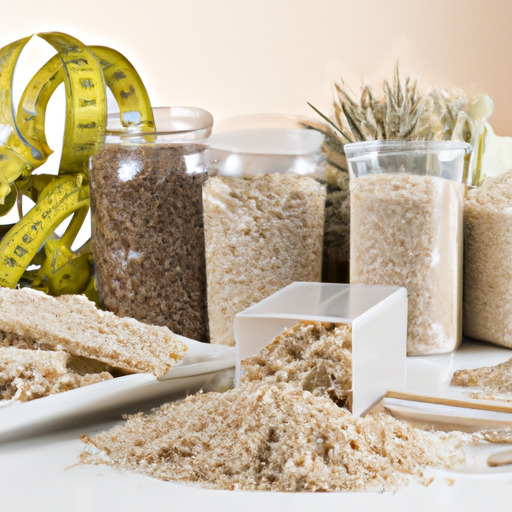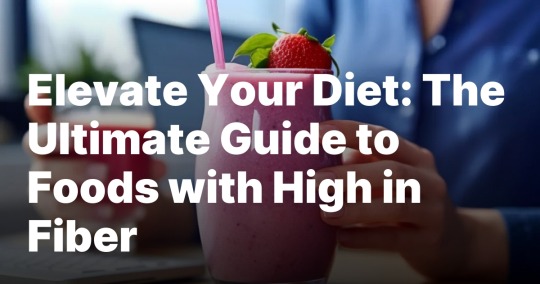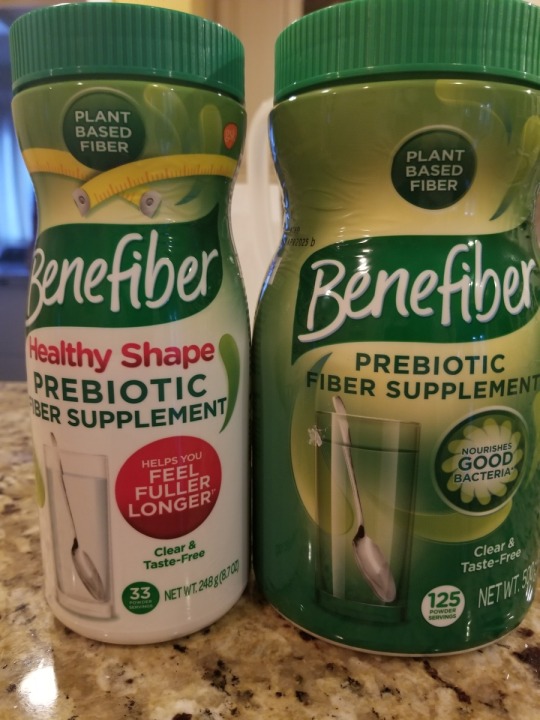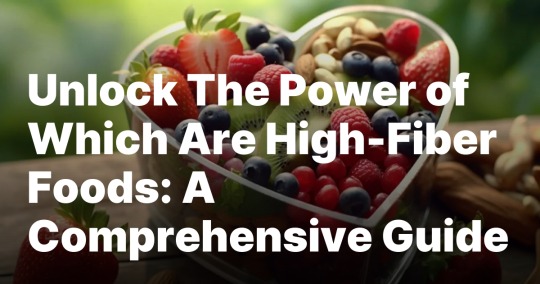#fiber supplements
Explore tagged Tumblr posts
Text
Weight Loss with Fiber: Psyllium Husk Compared to Other Supplements
#PSYLLIUM HUSK#psyllium husk suppliers#psyllium husk manufacturers#Weight Loss#Health Supplements#Fiber Supplements
2 notes
·
View notes
Text
Dietary Fiber Benefits: If You Are Not Getting Enough Fiber Through Your Diet, Consider Adding..
Dietary fiber is a type of carbohydrate that is essential for maintaining good health. It is found in plant-based foods such as fruits, vegetables, whole grains, nuts, and seeds. While fiber is not a nutrient that provides energy or essential vitamins, it plays an important role in maintaining good digestive health and preventing chronic diseases. Here are some of the benefits of dietary fiber:
Get Your FREE Book - FOOD. What The Heck Should I Eat?

Improves Digestive Health: One of the most well-known benefits of dietary fiber is that it promotes regular bowel movements and prevents constipation. Fiber helps to bulk up stool, making it easier to pass through the digestive system. This can help prevent digestive problems such as hemorrhoids, diverticulitis, and irritable bowel syndrome.
2. Helps Control Blood Sugar Levels: Fiber slows down the absorption of sugar in the bloodstream, which helps to prevent spikes in blood sugar levels. This can be particularly beneficial for people with diabetes, as it can help to regulate their blood sugar levels and reduce their risk of developing complications such as nerve damage, kidney disease, and blindness.
3. Reduces Cholesterol Levels: Soluble fiber found in foods such as oats, beans, and fruits can help to lower cholesterol levels. It does this by binding to cholesterol in the gut and preventing it from being absorbed into the bloodstream. This can help to reduce the risk of heart disease, which is the leading cause of death worldwide.
4. Promotes Weight Loss: Fiber is very filling and can help to reduce appetite, which can make it easier to control calorie intake and promote weight loss. This is because fiber absorbs water in the gut, making you feel fuller for longer.
5. Boosts Immune System: Some studies have shown that dietary fiber can help to boost the immune system. This is because it feeds the good bacteria in the gut, which play a crucial role in maintaining good health.
Fiber can be found in a wide range of plant-based foods, including fruits, vegetables, whole grains, nuts, and seeds. It is recommended that adults consume between 25 and 35 grams of fiber per day. While it is possible to get enough fiber through diet alone, some people may benefit from taking a fiber supplement.
In conclusion, dietary fiber is an essential nutrient that plays a crucial role in maintaining good health. It can improve digestive health, control blood sugar levels, reduce cholesterol levels, promote weight loss, and boost the immune system. If you are not getting enough fiber through your diet, consider adding more fiber-rich foods to your meals or taking a fiber supplement. As always, it's important to talk to your doctor before starting any new supplements or making significant changes to your diet.
Get Your FREE Book - FOOD. What The Heck Should I Eat?
#dietary fiber benefits#essential vitamins#digestive health#regulate blood sugar#reduce cholesterol#weightloss#lose weight#boost immune system#boost immunity#essential nutrients#fiber supplements
2 notes
·
View notes
Text
Friday's temperature check (procès-verbaux of 4-19)
The Renaissance began as a cultural movement in Italy in the later stage of the Middle Ages (not the middle ages that encourages AARP to fill my mailbox with coupons for simplified cell phone plans). The Renaissance cultivated some of the most famous art that we know today. Speaking of middle age, I am currently going through a sort of renaissance of my own. All it took was adding a letter to art and a particularly uncomfortable bout of diverticulitis a few years ago. According to the Wall Street Journal, several companies are now vying to make taking fiber supplements cool and sexy. Fiber One - you've all heard of it. You know who takes that. But are you familiar with BelliWelli, whose slogan - this is true - is hot girls have IBS? The race to create hip, sexy fiber supplements is on. This is why you're soon going to see the catchphrase Metamucil - we're into butt stuff. Hawking protein powders is easy. Personally, I wanted to increase my fiber in my diet by eating beans. But my plan dramatically backfired. No one is comfortable with listening to someone go on and on about their bathroom adventures. However, American diets are maximizing the intake of over processed food that’s causing all sorts of bowel problems. Like one constipated accountant who just can’t budget. I’m sure after I send this my TikTok feed will be projectile bursting with ads. I’m looking forward to it.
Stay safe!
Tom

0 notes
Text
Elevate Your Diet: The Ultimate Guide to Foods with High in Fiber
Discover the benefits of a high-fiber diet with our comprehensive guide to foods high in fiber. Unlock the power of fiber and improve your health today. Table of Content Introduction to Fiber-rich Foods Briefly explain the importance of fiber in a healthy diet and introduce the benefits of consuming high-fiber foods. What is Fiber? Define fiber and explain the two types: soluble and…

View On WordPress
#chronic disease prevention#Dietary Fiber#Digestive health#fiber and diabetes#fiber and heart health#fiber intake#Fiber Supplements#fiber-rich foods#foods with high in fiber#fruits and vegetables#health benefits of fiber#high-fiber recipes#Insoluble Fiber#legumes#Meal Planning#nuts and seeds#Soluble Fiber#Weight management#Whole Grains
0 notes
Text
How Much Fiber Should I Eat Per Day?
Introduction I’m glad you’re here to read about “How Much Fiber Should I Eat Per Day?” A healthy diet must contain fiber since it is crucial to maintaining excellent health. The lack of enough fiber consumption among many Americans, however, can result in digestive troubles, weight gain, and other health issues. The recommended daily consumption, different forms, advantages of a high-fiber diet,…

View On WordPress
#daily fiber intake#digestive health#fiber#fiber benefits#fiber side effects#fiber sources#fiber supplements#Fiber-rich foods#heart health#high-fiber diet#insoluble fiber#recommended daily intake#soluble fiber#tracking fiber intake#weight management
0 notes
Text
Supplement Marketing Deceptions: Benefiber Health Shape
A gastroenterologist recommended for a family member Benefiber to regulate bowel movements. Benefiber is a product of Haleon. I purchased Benefiber Healthy Shape from my regular Kroger. On one hand, the powdered supplment dissolved without taste in water and grape juice, which was an advntage over the Metamucil supplement we had tried before. In expectation of our relative’s continued use of the…

View On WordPress
1 note
·
View note
Text

#i was using it solely for reviews on a fiber supplement from ppl not diet companies#bc i need to fix my fuckin stomachhh#and this is sarcasm before some jackass thinks im a fucking ai supporting loser
1K notes
·
View notes
Text
if my medication keeps managing my symptoms this well i might be able to eat vegetables and fruits whenever i want again :) excited
7 notes
·
View notes
Text
I know we got baddies with the bad GI up in here so let me inform/remind you:
If you take a fiber supplement, try to take it at least 2 hours before or after other meds! Fiber can affect how pills move through the digestive tract and therefore how well the pills are absorbed.
May you have a tummyache-free day today 💛🦇
14 notes
·
View notes
Text
oh yes i love coffee and the minimum amount of food to get moving for breakfast and three medications and eating mostly processed foods throughout the day and virtually no fiber oughh why tummy hurt -2 hp -2hp -2hp i am scorned by god. pity me
10 notes
·
View notes
Text
Fiber Supplements for Weight Loss: Is Psyllium Husk the Superior Choice

Introduction:
Losing weight has become today’s people main goal because metabolism has increased and people have become more fat. In this struggle, Psyllium husk for weight loss have gained a certain importance. Psyllium husk for weight loss has become one of the most used supplements among the fiber supplements. However, Psyllium husk, being a fiber auxiliary, is used as an exchange of other fiber supplements. Is it superior or inferior? Is fleawort husk more efficacious than other fiber supplements? This blog aims to inquire about the advantages and disadvantages of fleawort husk vs other fiber supplements in order to find out which can be more promising in terms of losing weight.
Understanding Psyllium Husk for Weight Loss:
Psyllium husk, derived from the seeds of the Plantago ovata plant, is renowned for its high alcohol-soluble fiber content. When consumed, it forms a gel-like mass in the digestive tract, aiding in digestion and promoting feelings of fullness. Its power to absorb water and bulk in the colon makes it a common option for weight management.
Exploring Other Fiber Supplements:
Apart from fleawort husk, many fiber supplements populate the market, each boasting unique properties and purported benefits. These supplements may include glucomannan, methylcellulose, wheat dextrin, and others. While they share the common goal of improving digestion and promoting satiety, their mechanisms of action and strengths for weight loss vary.
Comparative Analysis of Psyllium for Weight Loss vs Other Fiber Supplements:
Solubility: Psyllium husk is predominantly alcohol-soluble fiber, whereas other supplements may contain varying proportions of alcohol-soluble and insoluble fiber. Soluble fiber forms a gelatinous gel in the digestive tract, slowing down digestion and promoting fullness, which can aid in weight loss.
1] Effect on Appetite: Studies suggest that fleawort husk may have a more pronounced effect on reducing appetite and calorie intake compared to some other fiber supplements. Its ability to form a gel-like mass in the colon contributes to prolonged feelings of satiety.
2] Impact on Gut Health: Both fleawort husk and other fiber supplements could contribute to improved gut health by promoting regular bowel movements and fostering a healthy gut microbiome. However, individual responses may vary depending on factors such as dosage and duration of supplementation.
3] Tolerance and Side Effects: While fiber supplements were generally well tolerated, some individuals may experience bloating, gas, or abdominal discomfort, particularly when first incorporating them into their diet. Understanding individual tolerances and adjusting dosage could help mitigate these side effects.
Conclusion:
Psyllium for weight loss emerges as a formidable competitor among fiber supplements. Its richness in soluble fiber, combined with its ability to promote feelings of fullness and aid digestion, positions it as a promising aid for individuals striving to shed excess weight. However, the choice between psyllium husk and other fiber supplements ultimately depends on individual preferences and weight loss goals. Consulting with a healthcare professional can provide personalized guidance in selecting the most suitable fiber supplement for achieving desired weight management objectives.
At KISAN AGRO, we understand the importance of providing high-quality products that support wellness and health goals. We are a leading psyllium husk manufacturer and supplier. Our psyllium husk products are carefully sourced and processed to ensure maximum purity and effectiveness. With a focus on customer satisfaction and product excellence, we strive to be your trusted partner in your journey towards a healthier lifestyle.
Considering psyllium husk for weight loss, our team is here to assist you at every step of the way and our knowledgeable staff can provide expert guidance to help you make informed decisions on Psyllium specifications.
By choosing KISAN AGRO for your fiber supplement needs, you can have confidence in the quality and efficacy of our products. We are dedicated to supporting you in achieving your weight management goals and enhancing your overall well-being. Reach out to us today to learn more about our products and how we can assist you on your wellness journey.
0 notes
Text
I feel like men in their late twenties right now are either gym bros who track every macro or they eat like highschool skaters with a $20 week allowance like every man I talk to either takes sea moss every day or hasn’t had plain water since January
#currently trying to convince my cousin to at least get a fiber supplement while sending him TikTok’s bout colon cancer lmaoooo#it can’t every day be half n halfs and a 10pc wing combo
9 notes
·
View notes
Text
Unlock The Power of Which Are High-Fiber Foods: A Comprehensive Guide
Discover the benefits of high-fiber foods and learn how to incorporate them into your diet. This comprehensive guide provides valuable information and a list of top sources to help you improve your well-being with the power of high-fiber foods. Table of Content Introduction to High-Fiber Foods Understanding Fiber What is Fiber? Types of Fiber: Soluble and Insoluble Health Benefits of…

View On WordPress
#Balanced Diet#Blood Sugar Control#Cereals and Grains#cholesterol levels#Colon cancer#Daily Fiber Intake#dietary choices#Digestive health#digestive system#FAQs#fiber content#fiber sources#Fiber Supplements#fiber-rich foods#fruits and vegetables#Health and Wellness#Health Benefits#Heart health#high-fiber foods#Insoluble Fiber#Legumes and Beans#Meal Planning#Nutritional Guide#Nutritional Information#nuts and seeds#portion sizes#Soluble Fiber#Weight Loss
0 notes
Text
an important rule of nutrition is that, generally, you won't see any benefits from taking supplements if you already get enough of a nutrient in your diet. if you already get enough vitamin c (and if you eat basically any produce or processed sour foods at all, you probably are getting enough vitamin c), then taking supplements won't increase your immune system's efficacy. if you don't have a zinc deficiency (and you almost definitely don't. it's a rare one), then taking zinc supplements probably won't increase your semen volume. etc etc etc. proper nutrition helps prevent problems but it doesn't create benefits, if that makes sense.
#also if you're american you're statistically almost definitely not getting enough fiber.#so you can take fiber supplements. if you really want to take healthy pills for your body#also you should be wearing sunscreen and taking vitamin d supplements. theyre cheap
5 notes
·
View notes
Text
A Guide to Prebiotic-Rich Foods for IBS Sufferers
Living with Irritable Bowel Syndrome (IBS) can be challenging, as symptoms like bloating, gas, and irregular bowel movements can impact daily life. One approach to managing these symptoms is through diet, particularly by focusing on gut health. Prebiotics, which are plant-based fibers that feed beneficial gut bacteria, can play a role in supporting digestion and enhancing gut health for those with IBS. In this guide, we'll explore some of the best prebiotic-rich foods that are suitable for IBS sufferers and how to incorporate them into your diet for optimal gut health.
Understanding Prebiotics and Their Role in IBS
Prebiotics are fibers that the human body does not digest. Instead, they travel to the colon, where they nourish beneficial bacteria in the gut. These good bacteria are essential for maintaining a balanced gut microbiome, supporting digestion, enhancing immunity, and reducing inflammation. For IBS sufferers, prebiotics can help improve gut health by promoting the growth of beneficial bacteria, which can aid in reducing symptoms.
However, it’s important to introduce prebiotics gradually if you have IBS, as increasing fiber too quickly can cause discomfort. It's best to start with small amounts and observe how your body responds.
Best Prebiotic-Rich Foods for IBS Sufferers
While many foods contain prebiotic fibers, not all of them may be suitable for individuals with IBS. Here are some gentle, prebiotic-rich foods that may be better tolerated by IBS sufferers:
Bananas
Bananas are a well-tolerated prebiotic food for many IBS sufferers. They contain resistant starch, a type of fiber that feeds beneficial bacteria in the gut. Bananas are easy to digest and can help regulate bowel movements, making them a great addition to your diet.
Oats
Oats are rich in beta-glucans, a type of soluble fiber with prebiotic properties. They can help soothe the gut lining and promote regular bowel movements. Oatmeal, oat-based cereals, or even oat milk are simple ways to add this gut-friendly food to your diet.
Blueberries
Blueberries are packed with antioxidants, vitamins, and prebiotic fibers that nourish beneficial bacteria in the gut. They are gentle on the digestive system and can be added to smoothies, yogurt, or eaten as a snack.
Carrots
Carrots are a low-FODMAP vegetable that can be well-tolerated by many IBS sufferers. They contain prebiotic fibers that support the gut microbiome without causing excessive gas or bloating. Enjoy carrots steamed, roasted, or raw as part of a balanced meal.
Potatoes (Cooled)
When potatoes are cooked and then cooled, they form resistant starch, a prebiotic fiber that benefits gut health. Cooled potatoes can be added to salads or served as a side dish. Make sure to incorporate them in moderation to see how your body responds.
Pumpkin Seeds
Pumpkin seeds are not only high in prebiotic fibers but also provide healthy fats and protein. They are a great topping for salads, oatmeal, or yogurt and can support gut health and digestion.
How to Incorporate Prebiotic Foods into Your Diet
If you're living with IBS and want to include more prebiotic-rich foods in your diet, here are some easy ways to get started:
Start with Small Portions
When adding prebiotic foods to your diet, start with small portions to avoid overwhelming your digestive system. Gradually increase the amount based on your tolerance level.
Combine with Soluble Fiber
Pairing prebiotic foods with soluble fiber can help soothe digestion. Soluble fiber is found in foods like oats, chia seeds, and apples and can help form a gel-like substance in the gut, which supports smooth digestion and bowel movements.
Mix Prebiotic Foods into Meals and Snacks
Add prebiotic-rich foods to your meals and snacks in creative ways. For example, top your oatmeal with bananas and blueberries for a gut-friendly breakfast, or enjoy carrot sticks with hummus as a nutritious snack.
Stay Hydrated
Drinking plenty of water throughout the day is important for digestion and can support the effectiveness of prebiotic fibers. Hydration is key to keeping things moving in the digestive system and reducing discomfort.
Tips for Managing IBS with Prebiotics
While prebiotics can support gut health, it's important to make adjustments based on your individual needs. Here are some additional tips for managing IBS while incorporating prebiotic foods:
Monitor Your Symptoms
Pay attention to how your body responds to different prebiotic foods. Keep a food diary to track your meals and symptoms, and adjust your diet based on what works best for you.
Pair with Probiotics
Probiotics are live bacteria that add to the gut microbiome, and they can work synergistically with prebiotics to support gut health. Consider including fermented foods like yogurt, kefir, or sauerkraut in your diet to enhance the benefits of prebiotics.
Choose Low-FODMAP Options
Some prebiotic foods can be high in FODMAPs (fermentable sugars that can trigger IBS symptoms). Choosing low-FODMAP prebiotic options like oats, bananas, and carrots can help support gut health without causing discomfort.
Seek Guidance from a Healthcare Professional
If you’re unsure about which prebiotic foods to incorporate into your diet or how to manage your IBS symptoms, consult with a healthcare professional or a registered dietitian who specializes in gut health.
Prebiotic Recipes for IBS Sufferers
Here are a couple of simple and tasty ways to incorporate prebiotic-rich foods into your meals:
Banana Oatmeal Breakfast Bowl
Prepare a warm bowl of oatmeal and top it with sliced bananas, blueberries, and a sprinkle of pumpkin seeds. This breakfast bowl is packed with prebiotics and offers a gentle start to your day.
Roasted Carrot and Potato Salad
Roast carrots and potatoes in olive oil and season with herbs. Once cooled, add them to a fresh salad with leafy greens and a light vinaigrette. This simple salad provides prebiotic fibers and can be enjoyed as a side dish or a light meal.
Prebiotics play a valuable role in supporting gut health, particularly for those living with IBS. By focusing on gentle, prebiotic-rich foods like bananas, oats, blueberries, and carrots, IBS sufferers can nourish their gut microbiome and improve digestion. Remember to start slowly, combine prebiotics with other gut-friendly foods, and seek guidance from a healthcare professional if needed. A balanced gut can make a significant difference in managing IBS and enhancing overall well-being.
#prebiotic foods#prebiotic supplements#prebiotic dietary fiber#prebiotic supplements for gut health#prebiotic cookies#Tata NQ
2 notes
·
View notes
Text
damn i really am just. so tired.
#bad sleep or fatigue? who can say really#new fiber supplements boutta mess me up on top of this so i dont think im going to work today (its my day off anyway but fall break started)#shouting into the void here
3 notes
·
View notes